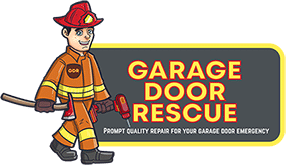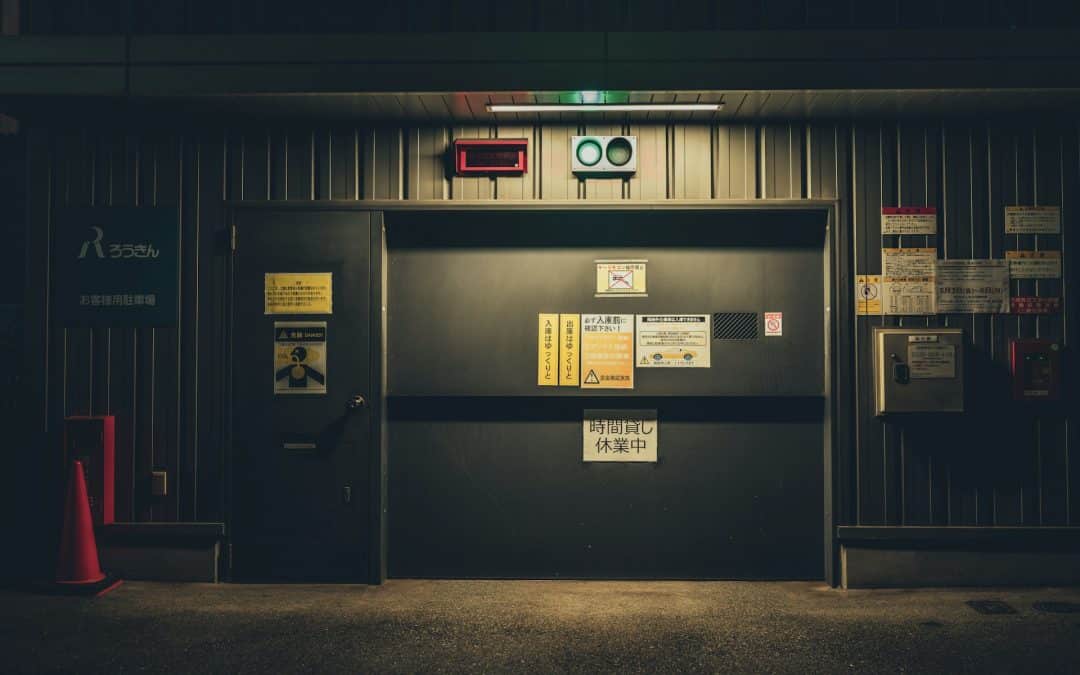A commercial door that works the way it should may not grab your attention until it doesn’t. In places like Fort Worth where businesses rely on smooth daily operations, a door that jams, sticks, or stops working can interrupt everything from deliveries to customer access. That kind of interruption doesn’t just slow down business. It can also create safety concerns, delays, and frustration for your team or your customers.
Keeping commercial doors in good shape takes more than just occasional attention. These doors are used more often and more heavily than residential ones, which means wear and tear shows up quicker. With frequent use, smaller problems can grow into bigger, more expensive ones fast. Knowing what to watch for early gives you a better shot at keeping everyday operations on track.
Identifying Common Commercial Door Issues
It’s easy to overlook the small signs of trouble until your door refuses to budge. Paying attention to the early warning signs helps stop problems before they force you to close your business’s entryway. Here are some of the most common commercial door issues we see around Fort Worth:
– Door won’t open or close all the way: A door getting stuck mid-movement is a sign something’s not right. This might point to damaged tracks, worn rollers, or issues with the opener.
– The door moves unevenly: If one side of the door lifts higher than the other or the motion is jerky, this often means misaligned tracks or failing hinges.
– Unusual noises: Grinding, squeaking, or banging sounds usually point to mechanical wear or lack of lubrication.
– Trouble with sensors: If your automatic door won’t respond or reverses for no reason, dirty or faulty sensors might be the problem.
– The door slams shut: That often means the spring tension is off or the opener settings aren’t adjusted correctly.
Picture this. You’re managing a busy storefront in Fort Worth, and your automatic door begins making a rattling noise every time it opens. It still works, so you ignore it for a few days. But the sound gets worse, and then one morning the motor gives out entirely. Now one of your main entrances is unusable during business hours, and it takes time and money to fix what started as a smaller problem.
Most of these issues come from a few main sources. These include:
– General wear from frequent use
– Lack of routine maintenance or cleaning
– Loose or misaligned hardware
– Broken or stretched-out springs
– Dirt on sensors or physical obstructions
– Faulty wiring or damaged electrical components
Spotting signs early helps stop a snowball effect where a minor problem turns into something that disrupts your entire day.
Troubleshooting Tips
Before assuming the worst, sometimes it’s a good idea to run through a few basics. Missteps in setup or everyday wear can cause a door to act up but still be an easy fix if caught early. Here are a few safe and simple steps to check:
1. Look for obstructions: Rocks, cardboard, packaging, or other debris in the way of the door can stop proper movement.
2. Inspect the sensors: A quick wipe can often clear away dust or grime that blocks the signal and causes problems.
3. Check battery-operated remotes or keypads: Weak or dead batteries can make remotes or wall-mounted controls unresponsive.
4. Examine the tracks: Visible dents, warping, or buildup along the tracks is a common culprit in jerky and uneven door movement.
5. Listen closely: Grinding might mean metal parts are rubbing, while clicking could point to an electrical issue.
If anything looks serious like frayed cables or heavily damaged parts, stop using the door and wait for a technician to take a look. Using a damaged door could make the issue worse or lead to someone getting hurt.
When to Seek Professional Help
Small hiccups may be fixable with a quick cleaning or battery change, but some issues call for a professional. If your door doesn’t respond at all, the motor hums without opening, or you see exposed wiring, it’s time to get expert help. Complicated electrical problems, mechanical component failure, and anything involving cables or springs pose risks if handled without the right tools and experience.
Look at flickering lights on control panels or odd sounds that don’t go away with a simple fix. Strange behavior like stopping mid-open or closing suddenly is another sign that something bigger is wrong.
One major concern is safety. If cables snap or springs break, doors can fall fast and hard. That’s a safety threat during business hours, especially around high-traffic areas like main entrances or loading docks. Heavy doors should never be forced open or closed when major parts aren’t working properly.
Consistent minor repairs are also a red flag. If you’re fixing the same thing over and over, it’s often smarter to ask a professional to diagnose the deeper issue. Their experience can save you time and money while helping the door last longer.
The Role of Regular Maintenance
Keeping your commercial door problem-free doesn’t have to be hard, but it does need regular attention. Think of maintenance as the detail work that keeps everything running the way it should in high-traffic areas. Fort Worth businesses depend on these systems every day, so staying ahead of wear keeps small problems from getting out of hand.
Routine work includes checking and tightening bolts, cleaning key components, and watching sensor performance. Use a light lubricant on rollers and hinges to keep the motion smooth. Weatherstripping should be intact to keep out the elements. If it’s cracked or missing, it’s a cheap fix that can prevent moisture damage or reduced energy efficiency.
Simple checks before or after hours can go a long way. Look out for small signs like unusual noise or resistance during movement. It might seem minor, but those are often hints that a part needs care or replacement. Having a calendar or signoff sheet for tracking maintenance checks can help with consistency and accountability.
Another benefit of regular maintenance is it gives you a chance to consider upgrades before something breaks. Maybe your door opener is outdated, or the sensor system regularly acts up. Addressing things proactively helps avoid unexpected closures.
Helping Your Fort Worth Business Stay on Track
Knowing how to spot problems early and when to ask for professional help lets you keep things moving without long delays. Little signs like a change in how your door sounds or moves are worth paying attention to. That awareness alone can help reduce downtime and protect your equipment.
Getting into a regular routine with upkeep does more than extend the life of your equipment. It lets you control the schedule and pace of repairs instead of reacting to sudden breakdowns. Keeping hardware aligned, sensors clean, and rollers lubed are small habits that protect a big investment.
But sometimes inspection and cleaning just aren’t enough. When parts fail, motors stop working, or strange new issues come up, it’s time to call someone who knows what to do. A technician can safely solve the problem and help you avoid repeated disruptions that affect both revenue and safety.
Letting problems go unchecked leads to bigger and sometimes avoidable bills down the road. Staying ahead with regular care, along with quick action when problems happen, is the best way to make sure your commercial door stays open for business, especially in a busy spot like Fort Worth. Keep things safe, simple, and reliable by putting prevention and expert service at the top of your maintenance list.
Make sure your business runs without interruptions caused by faulty doors. If you’re dealing with recurring problems or want to stay ahead of potential issues, let us help with reliable commercial door repair in Fort Worth TX. At Garage Door Rescue, we’re committed to keeping your commercial doors working just the way they should, so you can focus on the day-to-day without any slowdowns.

